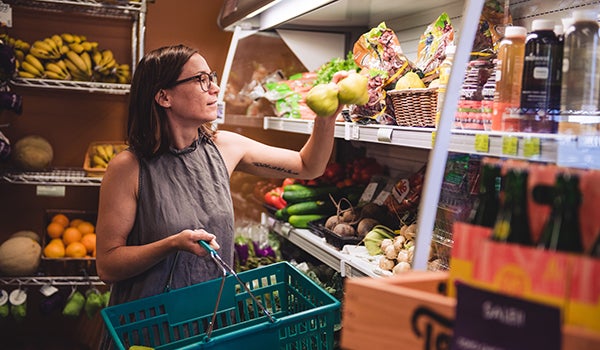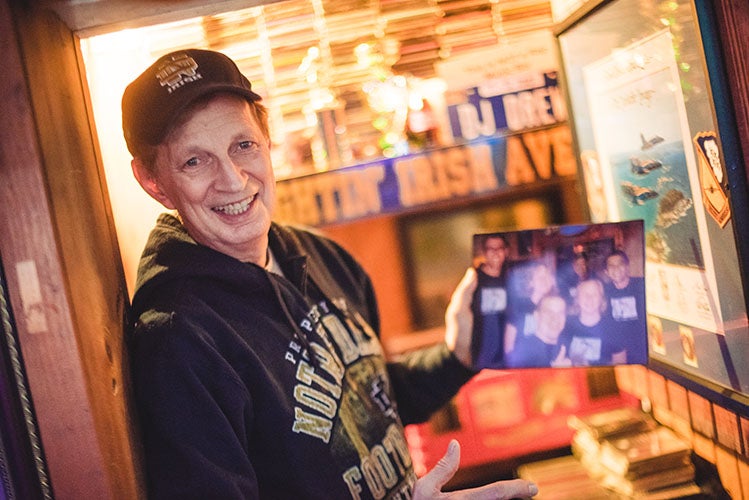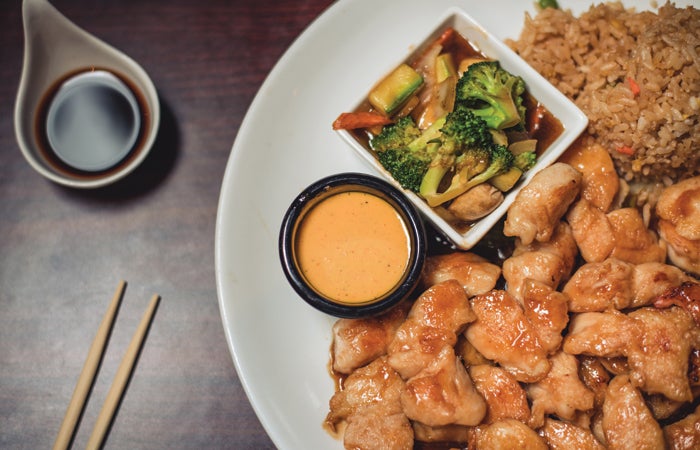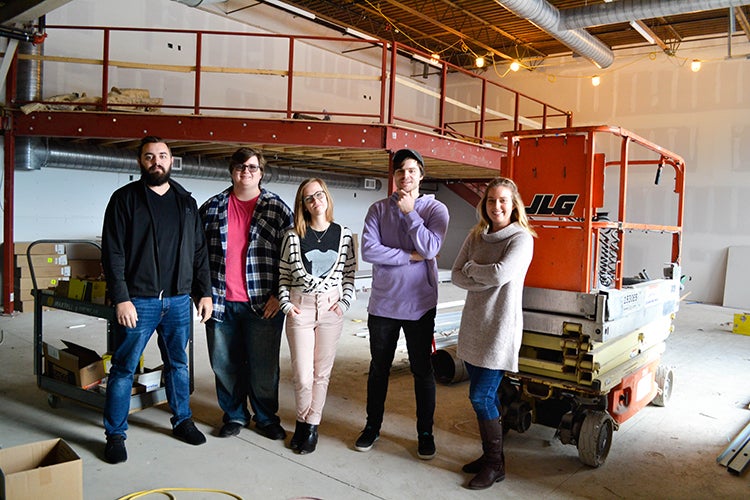In classic interpretations of the American dream, the trappings of a good life include a white picket fence, a manicured lawn and great schools to send the kids to.
Another version of the good life hinges on a cool place to shop for groceries — which downtown South Bend just happens to have.
Since 2014, the Purple Porch Co-op has provided its Hill Street shoppers with a community-minded vision of how food should be sold. They sell locally made groceries, operate an inventive cafe and even host weekly farmers markets, all in a unique cooperative style.
“One of our jobs here is not just doing what we do well and keep getting better at it and supporting our local producers, but also educating people on what a co-op is,” says Myles Robertson, the store’s general manager. “And really, a co-op is just a different way of organizing a business.”
Essentially, he explains, a co-op is a business that operates democratically. Rather than one owner selling to an army of consumers, a co-op is owned by a collective of what the Purple Porch calls “member-owners.” Though unusual in the U.S., Myles explains that the model is common in Europe.
From the Euro-trendiness to the on-tap Kombucha and the branded reusable bags, shopping at “the Porch” will definitely give shoppers hipster cred — but it will also give them a genuine feeling that their dollar is helping the community.
“We really focus on local food,” Myles says.
Around 40 percent of the products in-store come from producers within the USDA’s definition of “local,” which means they are 400 miles or less from South Bend. The majority of those — around 30 percent of the store’s total sales — use the even more strict Porch-approved definition, which reduces the radius to 60 miles.
“They’re kind of our neighbors,” he explains of these Porch-local producers. “You could get to their house in an hour.”
The types of products sold on the co-op’s shelves — both local and not — run the gamut of categories and cuisines. Drawing the stereotypical co-op, one might expect that Purple Porch would be stuffed with crunchy-granola products like tofu and, well, crunchy granola. The South Bend co-op has those kinds of goods (take the vegan scones, for example), but plenty of their products are just good food, made nearby.
As out-there as the business model may seem to some shoppers, the co-op is as welcoming to families and grandmas as it is to Subaru-driving yuppies — and soon, that welcome will extend even further.
Purple Porch is currently wrapping up a fundraising drive — in store parlance, a “member loan campaign” — to help expand and modernize their operations.
“A lot of the equipment we initially got was used,” Myles says, explaining the drive that first supplied the Hill Street location after the co-op’s nomadic early years. He points to a nearby fridge. “I think that deli cooler is 30 years old.”
The funds raised through this drive will replace these outdated pieces of equipment, as well as completing other cosmetic and industrial changes around the store.
But, in classic co-op style, the benefits don’t end at the property line.
In the day-to-day business of the store, member-ownership means benefits like discounts on store products and added say in decisions like what products the store should stock. But come fundraising time, the store’s 1,200 member-owners can become not just donors but lenders — whose contributions will be paid back, with interest.
“The way a member loan campaign works is that members of the co-op, because they own it, are essentially lending their business money,” Myles explains. “It’s not a donation. It’s you working with the co-op that you’re an owner of, us putting that money to good use, and then us fairly repaying you for that help that you gave us.”
Myles says the business model at the co-op means that the Porch supports its consumers — and their commitment to local goods spells support for producers. But the humble shop on Hill Street also traffics in goodwill for the neighborhood.
Downtown residents often point out that the neighborhood is a food desert, considering there are no big-box chains or supermarkets nearby. But with the Purple Porch smack in the middle of East Race, that descriptor doesn’t seem quite accurate.
“I work here, so it’s easy for me to do most of my shopping here,” Myles admits, “but when I don’t shop here I shop at Flamingo’s or I shop at Saigon [Market]. What I can find downtown…it’s, like, 99 percent of what I need.”
While chatting about the upcoming improvements to the co-op, one of the store’s producers came by to refill the pastry case. Their cookies and cakes were not delivered in a semi by an anonymous courier; they were carried in leftover orange crates by the baker herself. Every product at any store impacts someone’s life, but at the Purple Porch, the economic ecosystem unfolds right in front of customers: neighbors quite literally supporting neighbors.
A food-shopping system in which patrons get their taco shells from the mom-and-pop Mexican grocery, their lychee ice cream from the Asian one, and their locally grown produce from your friendly neighborhood co-op may not yet appear in the average vision of the American dream, but, with the Porch’s improvements starting to appear as early as September, we have a feeling it’s about to start. χ





